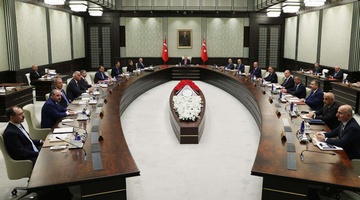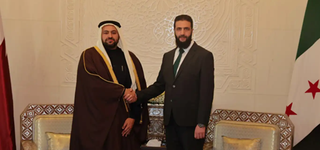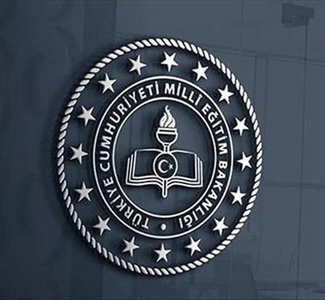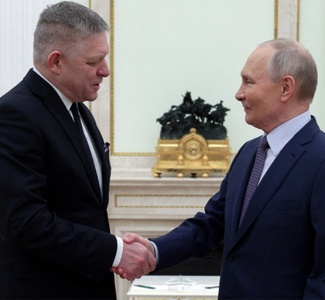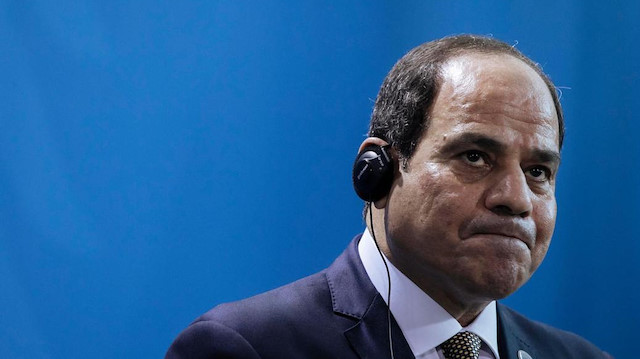Burning the Holy Quran has nothing to do with freedom, Altun says
Turkish Presidency's Director of Communications Fahrettin Altun responded to the questions of Swedish newspaper Dagens Nyheter regarding the controversy surrounding the burning of the Qur'an in front of Türkiye's Embassy in Stockholm, Sweden.
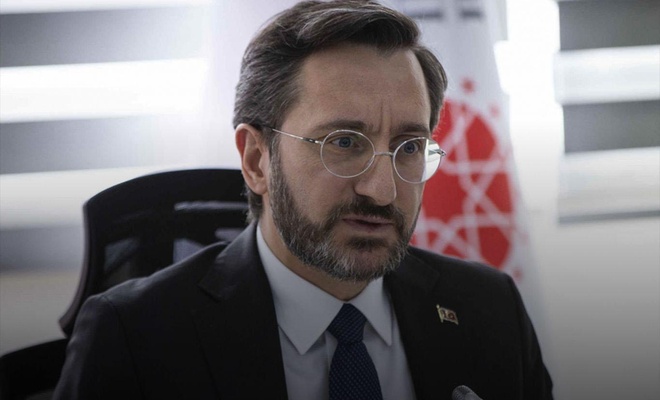
 Google News'te Doğruhaber'e abone olun.
Google News'te Doğruhaber'e abone olun. Indicating that there was a significant distinction between freedom of expression and hate speech, Altun stated that the Turkish Constitution also guaranteed freedom of expression. Director of Communications Altun said, “Burning the Quran in front of the Turkish Embassy has nothing to do with freedom. This act incites violence against Muslims, particularly Muslims in Sweden. The Nazis burned the pages of the Torah during the Kristallnacht incident. Would the Swedish authorities today describe such a horrendous act as within the freedom of expression?”
Noting that the same held true for terrorist propaganda, Altun said, “The Swedish government has made some commitments in Madrid. In recent days, we have heard the Swedish government assert that all of its promises have been fulfilled. It is obvious that this is not the case.”
Indicating that Türkiye and Sweden have longstanding political, economic, and cultural ties, Altun stated that today's contentious issues are well-known.
When asked about the current status of the Swedish Defense Minister's planned visit to Ankara this week, Altun said: “Minister of National Defence Hulusi Akar announced that this visit was cancelled due to the latest incidents in Sweden. In fact, the message is clear: If Sweden does not take Türkiye's concerns seriously, there is no point in coming together.”
When asked whether the new Swedish government was making enough efforts to join NATO, Altun reminded that Türkiye traditionally supported NATO's open-door policy and that it did not oppose Sweden's accession to NATO in principle.
Altun stated: “When Sweden expressed its desire to join NATO, we expressed our own reservations. Then we created a mechanism together to address these reservations. I will note that Sweden has taken some steps to address these reservations, but it has yet to be able to meet all of them. There is a distinction between expressing one's opinion and inciting violence via hate speech without even having to hide their affiliation with terrorists. We expect the Swedish authorities to keep their word.”
When asked about how long the process in question could take, Altun said, “This process will last as long as necessary. You may recall that Greece vetoed Macedonia's entry into NATO for ten years for a simple reason, Macedonia's name. Türkiye has much more serious concerns. We are talking here about terrorist attacks that killed thousands of innocent people.”
“Türkiye does not demand anything from Sweden that it does not want from its NATO allies”
Recalling that the NATO defence alliance is committed to defending NATO member states, Altun said that, for this reason, it was important to make the decisions collectively. Pointing out that there may be some differences of opinion, Director of Communications Altun emphasized that Türkiye did not demand anything from Sweden that it did not want from its NATO allies.
In response to the question, “What is the status of Türkiye-US relations? In the last week, has there been any comment from the US about Türkiye's position regarding Sweden?” Altun stated that Sweden's NATO membership had nothing to do with Türkiye-US relations.
Altun said: “I read certain comments in the Swedish media in the early stages of this process. They said that Türkiye would change its mind under pressure from third parties, particularly the United States. We found that these comments were wrong. This way of thinking has resurfaced in recent days. I can assure you that Sweden is the only country that can get Sweden into NATO.”
In response to the question, “There is an argument in Sweden that the government has made too many concessions to Türkiye in order to join NATO. What is your opinion on this?” Altun stated that it was perfectly normal to have differences of opinion on foreign policy in a democratic country. Pointing out that similar discussions might take place in Türkiye on various decisions and initiatives, Altun stated that whether or not to join NATO was a decision that the Swedish people must make. (ILKHA)




























